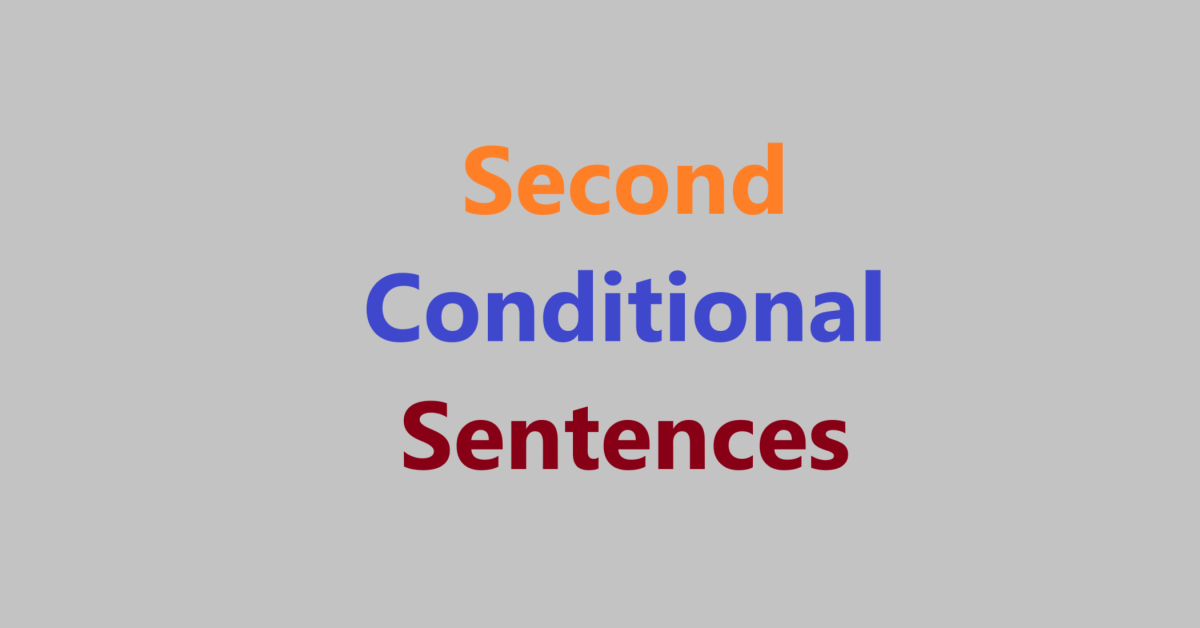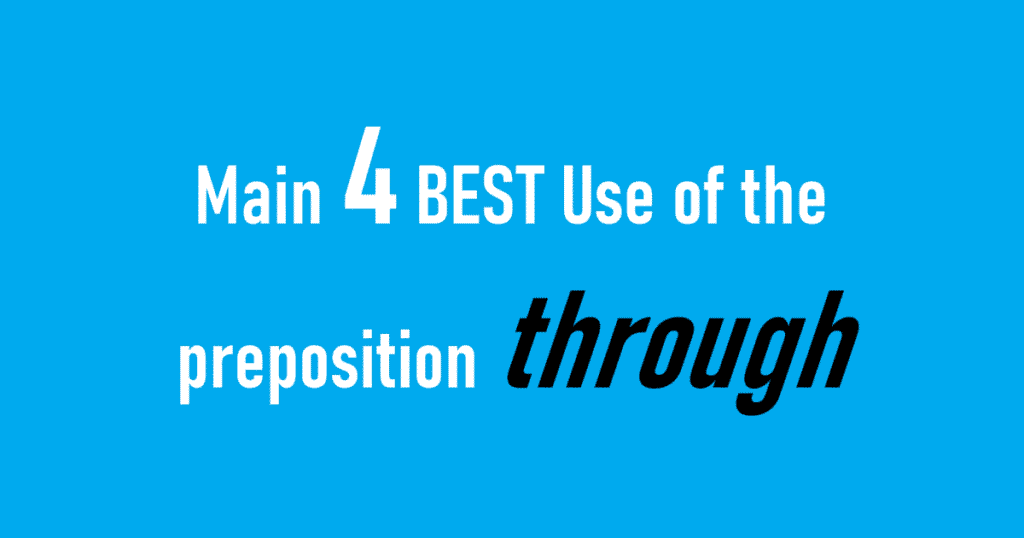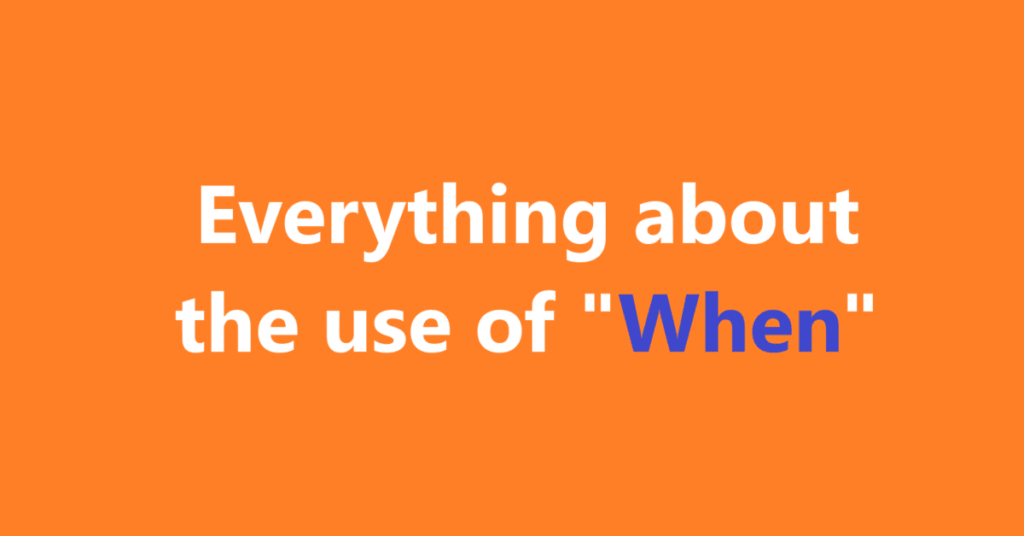The second conditional is used to express hypothetical or unreal situations in the present or future. It often reflects what could happen if the conditions were different. Here’s a comprehensive overview:
Structure
Second conditional sentences consist of two main parts:
- If-clause (condition): Simple past tense
- Main clause (result): “would” + base form of the verb
Formula:
If + past simple, would + base verb.
Examples
- If I won the lottery, I would buy a new house.
- If she went to college, she would study medicine.
- If they were here, they would help us.
Usage
The second conditional is used in the following contexts:
- Hypothetical Present or Future Situations: To express unreal or unlikely events.
- If I were taller, I would play basketball.
- Dreams or Wishes: To talk about desires that are not possible in the current reality.
- If I had a chance to travel anywhere, I would go to Japan.
- Advice: To suggest what someone should do in an unlikely situation.
- If I were you, I would take that job.
Special Notes
- “Were” vs. “Was”: In standard English, “were” is used for all subjects (I, he, she, it) in second conditional sentences when expressing hypothetical situations. However, many people informally use “was.”
- If I were richer… (grammatically correct)
- If I was richer… (common informal usage)
- Negative Form: You can form negative sentences by adding “not” after “would.”
- If it didn’t rain, we would go for a walk.
- Inversion of Clauses: The “if” clause can come after the main clause without changing the meaning and without needing a comma.
- I would buy a new house if I won the lottery.
Common Mistakes
- Incorrect Tense Usage: Ensure the “if” clause uses the past simple tense while the main clause uses “would.”
- Incorrect: If I would win the lottery, I would buy a new house.
- Correct: If I won the lottery, I would buy a new house.
Questions in Second Conditional
You can also form questions in the second conditional:
- What would you do if you had a million dollars?
- If you could travel anywhere, where would you go?
Summary
The second conditional is essential for discussing hypothetical situations, making wishes or dreams, and giving advice. It allows speakers to explore possibilities that are not currently true or likely.
Exercises
Here are exercises to help you practice forming second conditional sentences:
Exercise 1: Fill in the Blanks
Complete the sentences using the correct form of the verb in parentheses to create second conditional sentences.
- If I _______ (be) the president, I _______ (change) the laws.
- If she _______ (have) more time, she _______ (learn) piano.
- If they _______ (not get) lost, they _______ (arrive) on time.
- If we _______ (see) a bear, we _______ (run) away.
- If you _______ (eat) too much cake, you _______ (feel) sick.
Answers for Exercise 1:
- were / would change
- had / would learn
- didn’t get / would arrive
- saw / would run
- ate / would feel
Exercise 2: Rewrite the Sentences
Transform the following sentences into second conditional sentences.
- I don’t have a car. I can’t drive to work.
- If I had a car, I would drive to work.
- She doesn’t know what to do. She can’t help me.
- If she knew what to do, she would help me.
- They don’t invite us. We can’t go to the party.
- If they invited us, we would go to the party.
- He doesn’t study hard. He fails the exam.
- If he studied hard, he would pass the exam.
- You don’t tell me the truth. I can’t trust you.
- If you told me the truth, I would trust you.
Exercise 3: Create Your Own Sentences
Write your own second conditional sentences based on these prompts.
- Winning a large amount of money:
- If I won a large amount of money, I would travel around the world.
- Having a dream job:
- If I had my dream job, I would be very happy.
- Living in a different place:
- If I lived in a different place, I would experience new cultures.
- Meeting a famous person:
- If I met a famous person, I would ask for a selfie.
- Becoming an expert in a skill:
- If I became an expert in a skill, I would teach others.
Exercise 4: Multiple Choice
Choose the correct answer to complete each sentence in the second conditional.
- If I _______ (have/had) a pet, I _______ (would love/would loves) it.
- a) have / would love
- b) had / would love
- If she _______ (was/were) taller, she _______ (could play/would play) basketball.
- a) was / could play
- b) were / would play
- If we _______ (be) you, we _______ (take) that opportunity.
- a) were / would take
- b) was / would take
Answers for Exercise 4:
- b) had / would love
- b) were / would play
- a) were / would take
Exercise 5: Error Correction
Each of the following sentences contains a mistake related to the second conditional structure. Identify and correct the errors.
- If I was you, I would take the job.
- If she would have more time, she would visit us.
- If he didn’t eat so much junk food, he would be healthier.
- If they were not so busy, they would come to the party.
- If it would stop raining, we could go outside.
Answers for Exercise 5:
- If I were you, I would take the job. (Use “were” instead of “was.”)
- If she had more time, she would visit us. (Use “had” instead of “would have.”)
- Correct: If he didn’t eat so much junk food, he would be healthier. (No correction needed.)
- Correct: If they were not so busy, they would come to the party. (No correction needed.)
- If it stopped raining, we could go outside. (Use the past form “stopped” instead of “would stop.”)
Exercise 6: Sentence Transformation
Change the following sentences into second conditional sentences based on the prompts provided.
- I am not a great cook. (Use “would cook” instead of “am.”)
- If I were a great cook, I would cook delicious meals.
- I don’t have a smartphone. (Use “would buy” instead of “have.”)
- If I had a smartphone, I would buy the latest one.
- I don’t speak French. (Use “would speak” instead of “don’t.”)
- If I spoke French, I would speak to natives fluently.
- They don’t go to the gym. (Use “would go” instead of “don’t.”)
- If they went to the gym, they would be in shape.
- We are not traveling this year. (Use “would travel” instead of “are.”)
- If we were traveling this year, we would visit Europe.
Exercise 7: Create Questions
Formulate questions using the second conditional based on the scenarios provided below.
- You could change one thing about your life.
- If you could change one thing about your life, what would it be?
- You found a treasure.
- If you found a treasure, what would you do with it?
- You met your favorite celebrity.
- If you met your favorite celebrity, what would you ask them?
- You could live anywhere in the world.
- If you could live anywhere in the world, where would you choose?
- You could master one skill.
- If you could master one skill, which one would you choose?
Exercise 8: Discussion Activity
Engage in a discussion by answering the following prompts with your partner or by writing down your thoughts. Use second conditional sentences in your responses.
- What would you do if you could time travel?
- If I could time travel, I would visit ancient civilizations.
- What would happen if people lived on Mars?
- If people lived on Mars, they would need to adapt to different living conditions.
- What would you change if you were the president for a day?
- If I were the president for a day, I would implement policies for climate change.
- If you had the option, would you want to be famous? Why or why not?
- If I had the option, I would want to be famous because I could use my platform to help others.
- If you had unlimited resources, how would you improve your community?
- If I had unlimited resources, I would build more parks and community centers.
FAQs on Second Conditional Sentences
Here’s a list of frequently asked questions (FAQs) focused on second conditional sentences, along with concise answers.
1. What is a second conditional sentence?
The second conditional is used to talk about hypothetical or unreal situations in the present or future. It often expresses wishes, dreams, or unlikely scenarios as they are not based in reality.
2. What is the structure of a second conditional sentence?
The second conditional typically follows this structure:
If + simple past + would + base form
- Example: If I had a million dollars, I would travel the world.
3. What does the second conditional express?
The second conditional expresses situations that are unlikely or impossible, emphasizing that the condition is not true in the present. It allows speakers to explore imaginary outcomes or desires.
4. Can you give examples of second conditional sentences?
Certainly! Here are some examples:
- If I were taller, I would play basketball.
- If she had more time, she would learn an instrument.
- If they traveled more often, they would see the world differently.
5. Why do we use “were” instead of “was” in the second conditional?
The use of “were” instead of “was” with all subjects in the second conditional is known as the subjunctive mood. It expresses hypothetical situations and is standard in formal writing and speech.
- Example: If I were you, I would take that job.
6. Can “could” or “might” be used in second conditional sentences?
Yes, “could” or “might” can be used instead of “would” to express possibility or ability. Using “could” indicates capacity to do something, while “might” suggests a lower probability.
- Examples:
- If I had more time, I could help you.
- If it stopped raining, we might go for a walk.
7. Are contractions commonly used in second conditional sentences?
Yes, contractions are often used in informal contexts. For example:
- If I’d known about the event, I would have gone.
- If you’d asked me, I would have helped.
8. Can the second conditional express future hypothetical situations?
Yes, the second conditional can refer to unlikely future situations. The meaning remains hypothetical, often discussing what might happen in an improbable scenario.
- Example: If I won the lottery, I would buy a house.
9. What are some common mistakes to avoid with second conditional sentences?
Here are some common mistakes:
- Using the wrong tense: Using the infinitive or simple present instead of simple past in the if-clause.
- Incorrect: If I win the lottery, I would buy a car.
- Correct: If I won the lottery, I would buy a car.
- Incorrectly using “was”: Using “was” instead of “were” for hypothetical situations.
- Incorrect: If I was rich, I would travel.
- Correct: If I were rich, I would travel.
10. How can I practice using second conditional sentences effectively?
You can practice second conditional sentences in several engaging ways:
- Writing Exercises: Create sentences beginning with “If” to describe unlikely scenarios.
- Role Play: Discuss hypothetical situations with a partner (e.g., “If you could meet any celebrity, who would it be?”).
- Reflection Prompts: Answer questions like “What would you do if you could change one thing in your life?”


